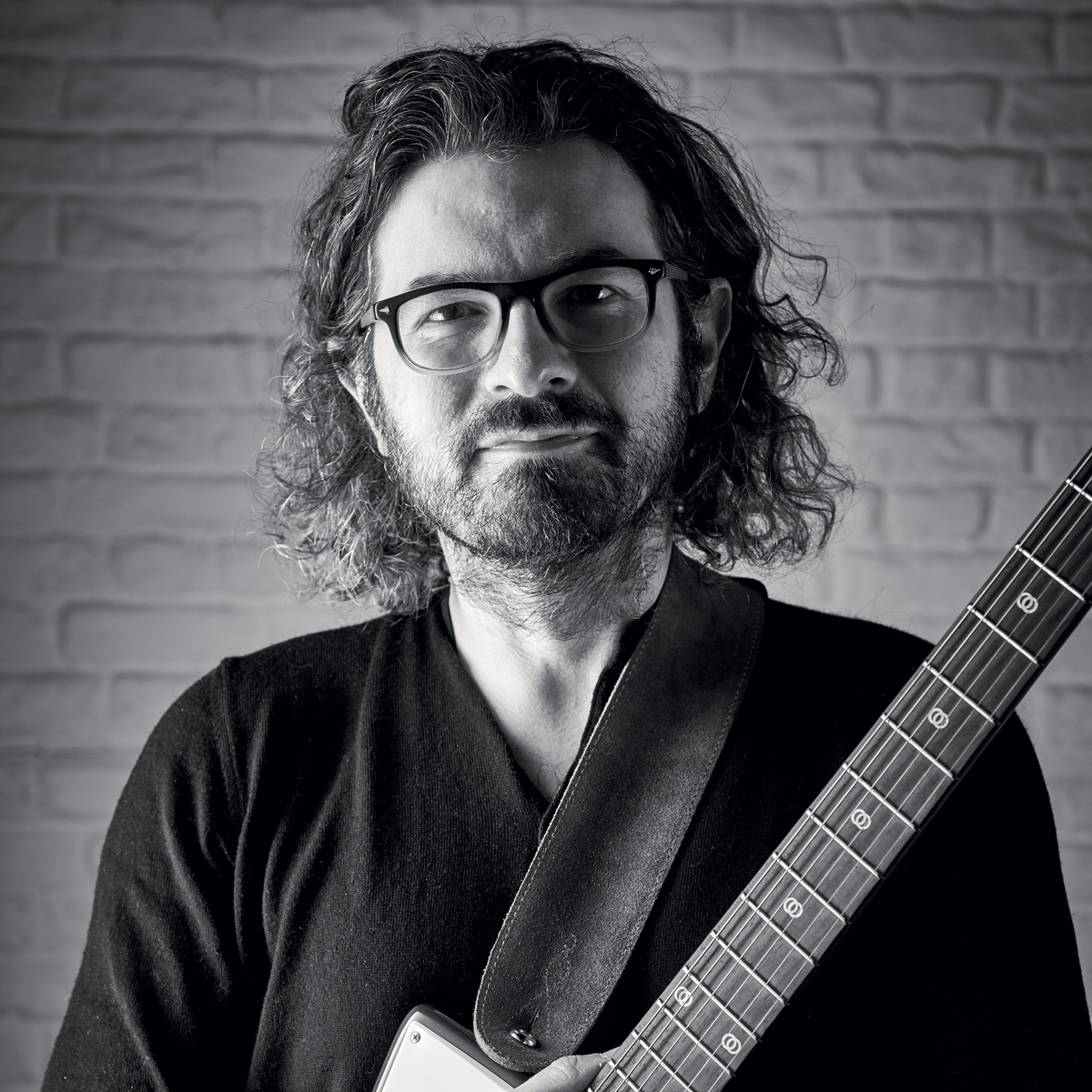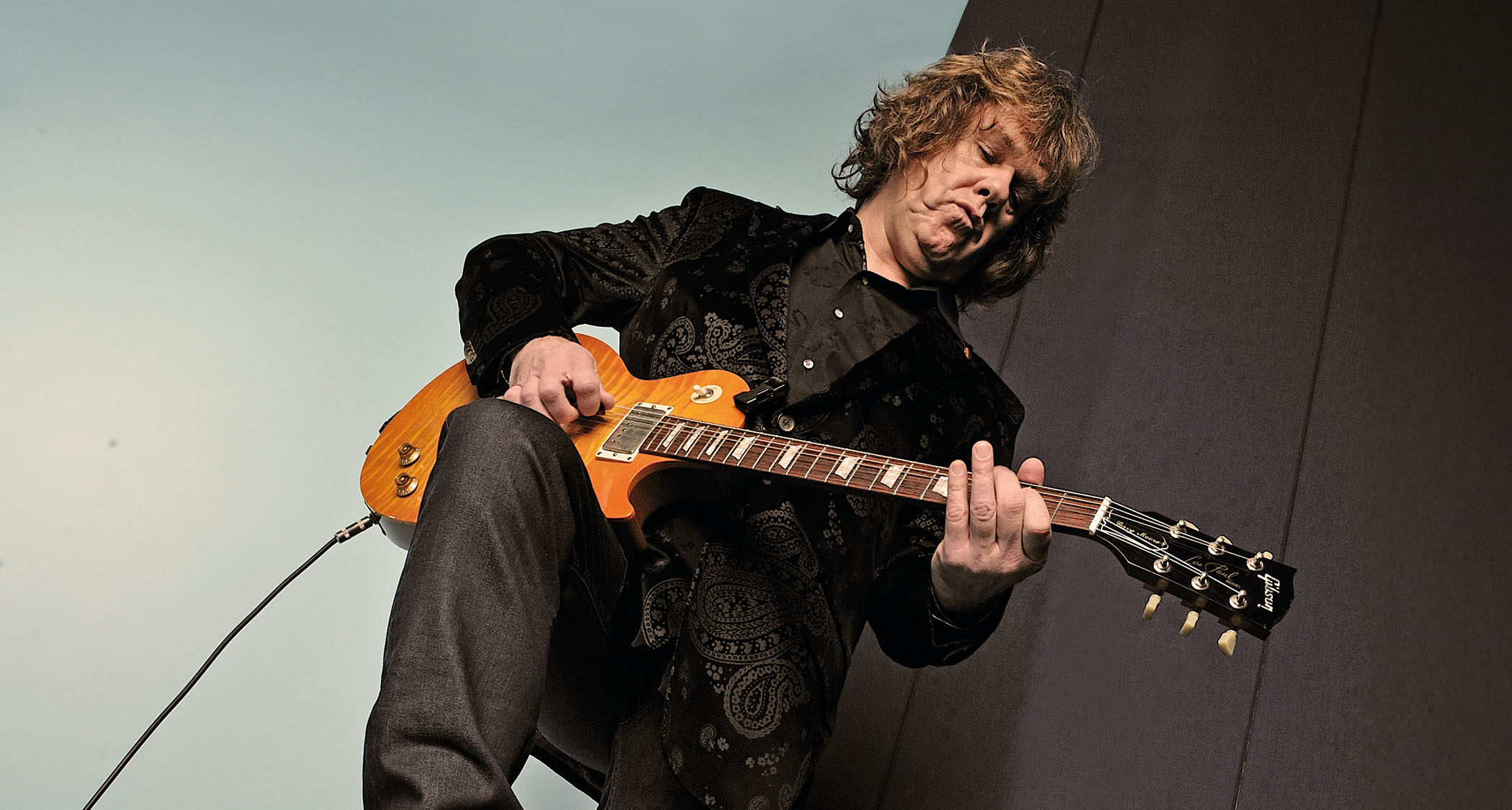Joan Armatrading: "When Mark Knopfler wrote Money For Nothing, he knew it was a hit. As the creator, if you don’t know, you need to do something different"
The legendary singer-songwriter on her approach to her craft, the importance of letting the song choose the instrumentation and why she can't put the guitar down
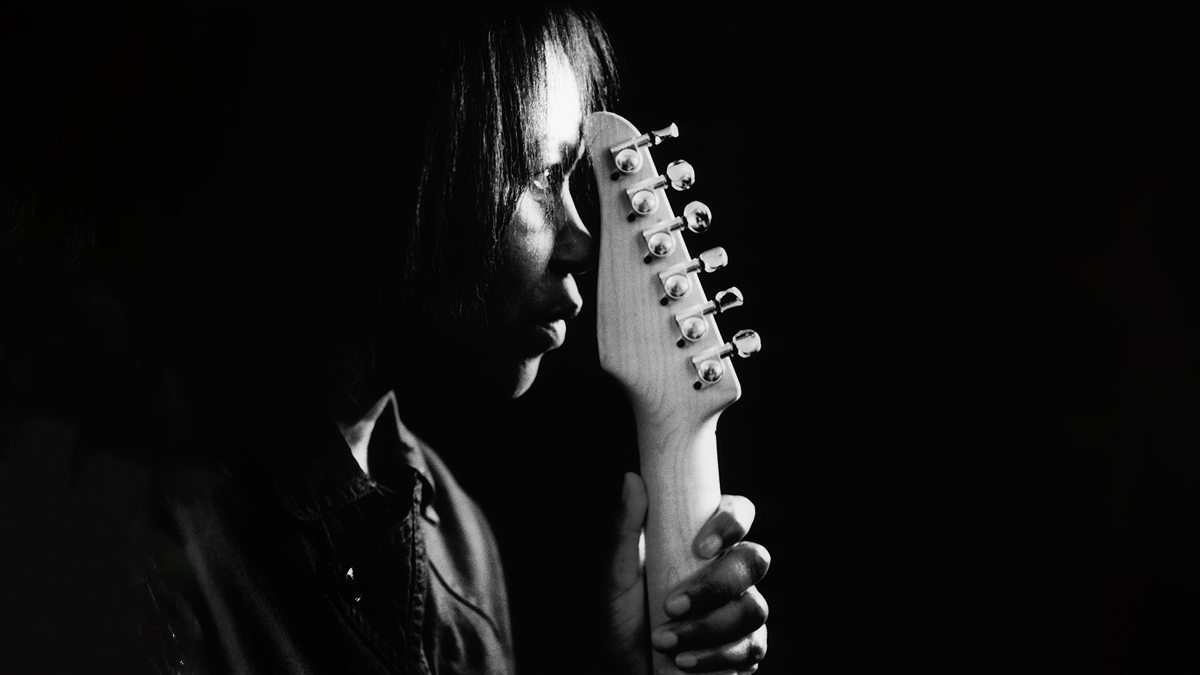
All the latest guitar news, interviews, lessons, reviews, deals and more, direct to your inbox!
You are now subscribed
Your newsletter sign-up was successful
She’s the Grammy-nominated singer-songwriter whose observational songs have struck a chord since ’72.
Now, as Joan Armatrading releases her 22nd studio album, Consequences, she tells us about pawn-shop guitars, disapproving parents and why human emotion still drives her songwriting.
Out Of Reach
“My father played the guitar, but he wouldn’t let me touch his. I think, because of that, I wanted to play it even more. That was the impetus, really: what is it about this thing that means I’ve got to stay away from it? I found my first guitar in a pawn shop. It cost three pounds and I said to my mum, ‘Can I have it?’ She said, ‘Well, we haven’t got the money, but if they’ll swap these two prams for it, you can have it.'
“I’ve still got that guitar. It’s a big-bodied, no-name guitar and I just started learning on that. And I’ll tell you something else. My father used to hide his guitar on the top shelf down in the cellar, which had a really heavy iron door on it, like one of those doors you see on great big bank safes. When we moved, he left his guitar there. He forgot it!”
Ain’t Nobody
“From there, I just started writing my own songs, either on the guitar or on the piano that my mother bought for the front room, which was a great piece of furniture. Everything I did back then was self-taught. I wasn’t buying any records and I wasn’t going to any gigs. So there wasn’t an ‘anybody’ playing the guitar to influence me – apart from my father, who didn’t want me to play it!
“Later on, once I’d got into the guitar, then there were so many guitarists that I think are fantastic. I think Mark Knopfler is one of the best guitarists ever. I love Leslie West. Jimmy Page is great. You know, there are so many great guitarists – but none of them started me off. I just did my own thing and came to those guitarists much, much later.”
Stepping Out
“When I played my first gig at Birmingham University, aged 16, I didn’t know anybody else’s songs. I just wanted people to hear my songs – which hasn’t really changed over the years. Being onstage isn’t the be-all and end-all for me. I mean, I go onstage and I do really enjoy it, but what I’m enjoying is the audience’s reaction to the songs, not, ‘Oh, look at Joan.'
All the latest guitar news, interviews, lessons, reviews, deals and more, direct to your inbox!
“That connection with the songs is what I’m interested in. Like, if Willow comes up in the show, and somebody clutches the person they’re stood next to – and maybe they’re thinking, ‘Oh, that’s the song we fell in love or got married to’ – that’s great. Sometimes, you see a real connection when you look out at an audience… not that you can always see past the first few rows.”
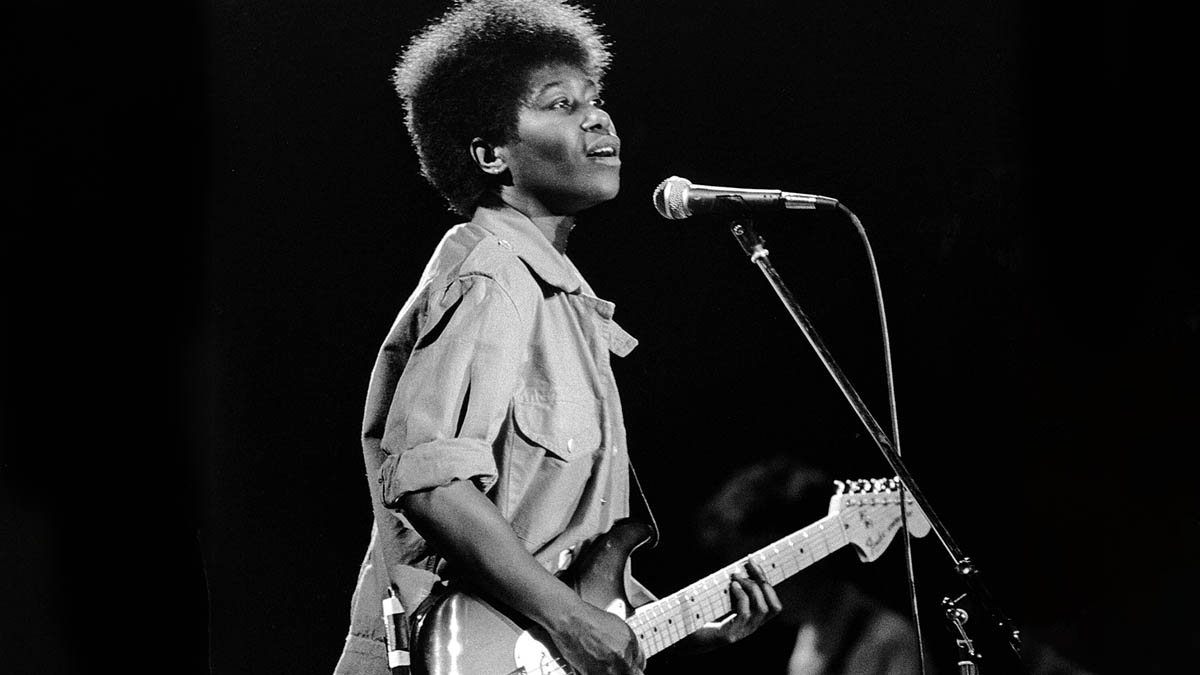
From Me To You
“I was asked the other day about my new album Consequences, and whether the album title is a confessional. No, it’s not. Most of the songs I write are not about me. The lyrics to my songs are coming from something real, it’s just not always my life. That’s just the way I write.
“With the songs on Consequences, it could be about whichever relationship you’re in, whether that’s a deep friendship, love, marriage. Once I’ve written a song, I hand it over to you. It’s up to you to decide what you gain from that song and what your interpretation of it is.
“I can’t sit by everybody and say, ‘Okay, this is what it’s supposed to be about.' Songs take on a life of their own. Look at the inventor of the electric light bulb. He probably thought, ‘Well, we’ll just have it for this one room.' Little did he know that the whole world would be lit up, every night.”
Character Studies
“When I write, my theme will always be people and emotions. That’s not changed since day one. I write about how people interact and relate. The planet, with all its greenery and the flowers and the shrubbery – that’s all wonderful. But really, I think we’re here as humans to communicate with each other, to take care of each other and to comfort each other.
“As a writer, I’m trying to draw out the character of whatever person I’m writing about, whether they’re a good person, whether they’re a bad person, whether they’re a stupid person. I’m just thinking about the character of that person and going into that.”
Evolution Theory
“From 1972 until 2003, on every album I made, what I would do is this: if a pop song came into my head, then I’d write a pop song. If a jazz song came into my head after I’ve written that pop song, I’m going to write a jazz song. If a reggae song comes, I’ll write a reggae song. That’s how I would go about all those early albums.
“But in around 2003, I decided to change that up and be more specific about what I’m doing. I’ve always played every instrument on my demos, but on that year’s Lovers Speak, I decided I would play everything myself. And then, in 2007, I decided I would do a trilogy of blues, rock and jazz albums.
“First, I did a blues album with Into The Blues (2007). Then I did a rock album with This Charming Life (2010). Then a jazz album with Starlight (2012). Next, I did something more acoustic-sounding with Not Too Far Away (2018), and now, on Consequences, there’s still guitar but it’s very keyboard-heavy. I think ‘challenge’ is an overused word, but I want to make myself do different things. So on each album, I try to think, ‘What do I want this album to do?’"
The Song Decides
“For me, the piano and guitar are two very different instruments. The songs that I write on piano tend to be a lot more melodic. They’re quite tuneful. They flow. They’re very lyrical. Whereas the songs I write on guitar tend to be more rhythmic, more angular and sometimes more aggressive.
“I mean, I just mentioned the Not Too Far Away album, and that’s played on guitar and it’s very acoustic-sounding, very melodic and not angular at all – but most of the time, for me, the guitar is driving the song. My songs dictate what instrument they’re going to be played on. Most of the time, it’s nothing to do with me. The song will say, ‘Okay, I need to be a guitar song,’ and I just go with it.”
The Right Ingredients
“I just know when a song is ready. And it’s my job to know. But I couldn’t write it down, and what that ingredient is that lets me know a song is done, I couldn’t tell you. Is it after I play that last chord and the final tail of it stops after three beats? I’ve no idea.
I don’t even know how I write songs. But you know when it’s right
“But it’s my job as the creator to know, either, ‘That’s gone really well,’ or, ‘I need to change that.' Or, if I make a mistake, to know whether the mistake is actually the right thing and to stay with it. It’s important to know that as well. You might want to hit a D chord, and by mistake you hit an F, and it’s up to you to know that F is actually where you should go.
“I don’t even know how I write songs. But you know when it’s right. When Mark Knopfler wrote Money For Nothing, he knew that was a hit song. As the creator, if you don’t know, then something’s wrong with you and you need to do something different!”
The Big Time
“The success of Love And Affection in 1976 hasn’t changed my life. What it has done is allowed people to hear the songs, which is all I’m interested in. But that’s it. I’m only interested in people hearing the songs and connecting with them. I do want them to buy the songs, and the reason for that is because once they’ve bought a song, they’ll own it and they’ll listen to it.
“Very few people buy something then just put it on the back burner. You know, if they buy it, then they’ll listen to it at least once. So the success for me is the success of my songs. It’s not for me. I couldn’t care less about that.”
Choose Your Weapon
“If you’re writing a song, you’ve got to work out, ‘How should this song sound and what type of guitar does it need? Should it be electric or should it be acoustic? Should it be a jangly sound or should it be a crunch sound?’ A blues album is going to be electric guitar. And a rock album is definitely going to be all electric guitar. But it’s up to you as a writer to work out what will work for this song.
“You might start a song on one guitar, and you just know that something about it isn’t right. The lyrics are right, the melody is right, the rhythm is right – but the feel of it isn’t right. Then you swap for another guitar and it all just falls into place.
“You might start recording with a Gibson and think, ‘Ah, no, that doesn’t sound quite right,’ so then you go to a Fender, and that works, so you stay with it. All of these things are very strange and intangible. They’re things you can’t put your finger on. You can’t say why. But that’s what happens.”
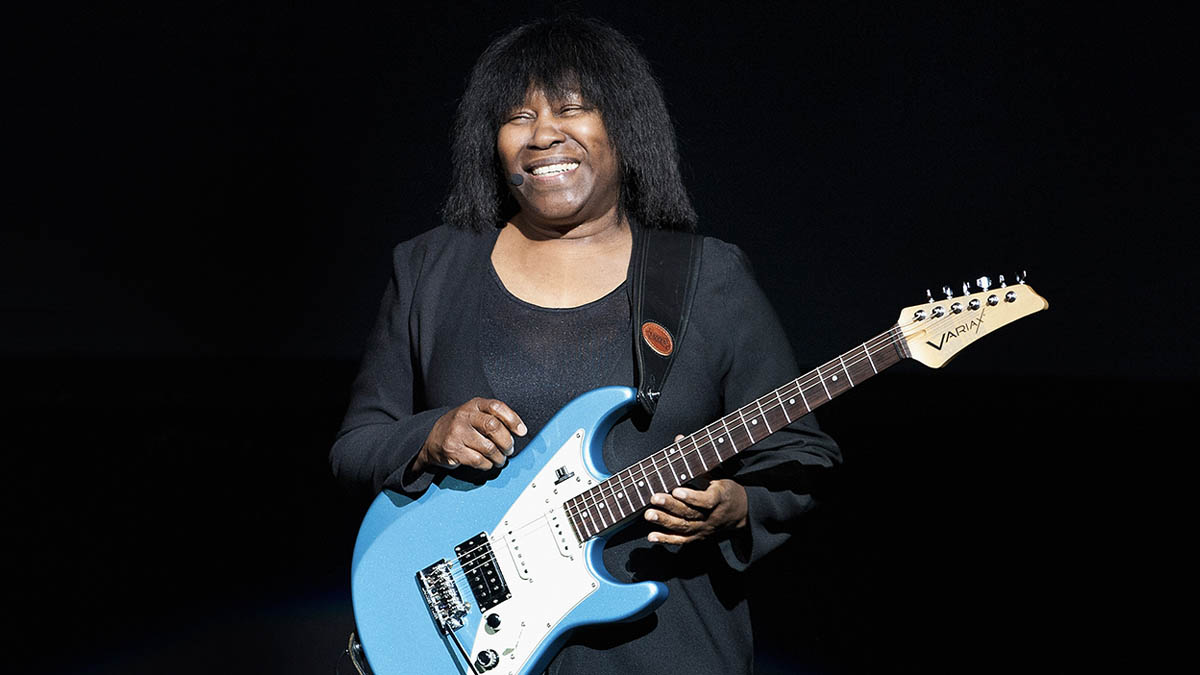
Swapping Sounds
“I play all kinds of guitars. I play Tom Anderson, I play Fender, I play Gibson, I play Ibanez. There’s Martin, of course. And I still play Ovations, as well. So it’s a varied thing. I suppose you can just stay with one guitar. But I find that swapping makes a difference. So I play whatever.
“But my main electric guitar at the moment is the Line 6 Variax. That’s quite good, because it gives you the choice of a lot of different guitar sounds, and it’s got quite a nice feel as well. When I’m just playing, then I’ll tend to pick up a Fender. But when I’m serious or I’m working towards a livestreamed gig, I’ll go for the Variax.”
What Goes Around
“The album title of Consequences is about how with everything you do, there’s a consequence, good or bad. You might have a plan for the way your day is going to go. But then, along the way, something really stupid happens.
“The reference I use is making a cup of tea, You put the tea in the cup, pour the water in, then you get the milk – and drop the bottle. So now you’ve got to concentrate on clearing up the glass, not getting cut, wiping the floor, then going to the shop for more milk – and something else happens on the way.
“So this very simple act of making of a cup of tea sends you off in a whole different direction. No matter how innocent it seems, the consequence of everything you do has a flipside. With this album, it’s somebody saying to somebody else, ‘Just remember the consequences of how we go about this relationship.'”
Original And Best
“Sometimes you’ll hear people do a cover of a song and you might think, ‘That version sounds really good.' But nine times out of ten, without the original version, it wouldn’t sound as good, you know what I’m saying? Like with my song Think About Me, that’s got the jangly guitars on there, and somebody else might do it on a piano and it would sound great. But the reference has to be the original.”
Love Of My Life
“I’ve always loved playing guitar – and I’ve been playing it a long time. But at the moment, I’m getting ready to do a livestream concert, and I’ve been playing the guitar for that, and it’s almost like I’m relearning the instrument. I’m still trying to work out why it is that I’m having this strong connection to the guitar at this time. For some reason, I can’t put it down. It’s incredible.”
- Consequences is out now via BMG.
Jamie Dickson is Editor-in-Chief of Guitarist magazine, Britain's best-selling and longest-running monthly for guitar players. He started his career at the Daily Telegraph in London, where his first assignment was interviewing blue-eyed soul legend Robert Palmer, going on to become a full-time author on music, writing for benchmark references such as 1001 Albums You Must Hear Before You Die and Dorling Kindersley's How To Play Guitar Step By Step. He joined Guitarist in 2011 and since then it has been his privilege to interview everyone from B.B. King to St. Vincent for Guitarist's readers, while sharing insights into scores of historic guitars, from Rory Gallagher's '61 Strat to the first Martin D-28 ever made.
